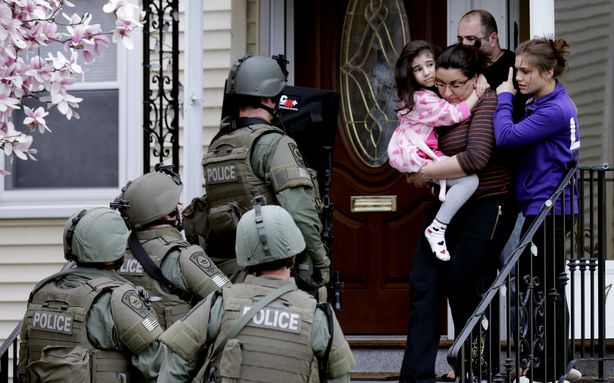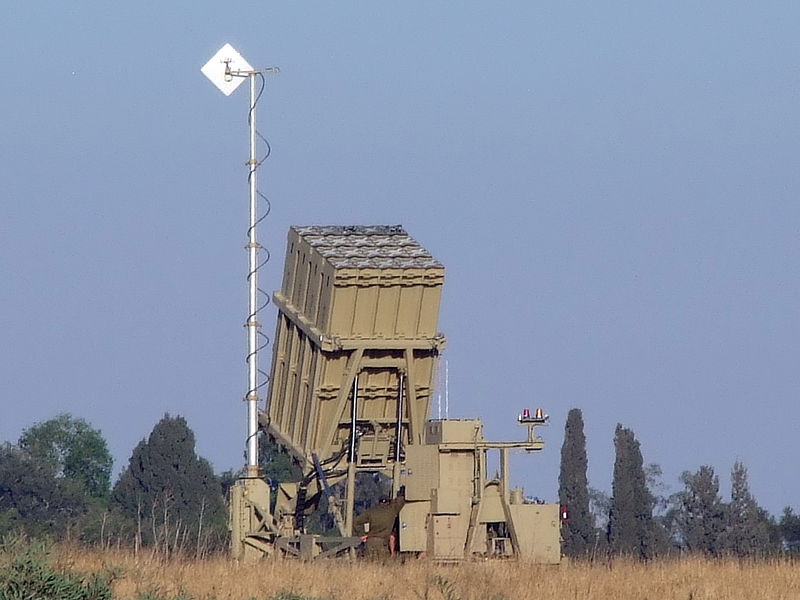Michele Catalano was looking for information online about pressure cookers. Her husband, in the same time frame, was Googling backpacks. Wednesday morning, six men from a joint terrorism task force showed up at their house to see if they were terrorists. Which prompts the question: How’d the government know what they were Googling?
Catalano (who is a professional writer) describes the tension of that visit.
[T]hey were peppering my husband with questions. Where is he from? Where are his parents from? They asked about me, where was I, where do I work, where do my parents live. Do you have any bombs, they asked. Do you own a pressure cooker? My husband said no, but we have a rice cooker. Can you make a bomb with that? My husband said no, my wife uses it to make quinoa. What the hell is quinoa, they asked. …
Have you ever looked up how to make a pressure cooker bomb? My husband, ever the oppositional kind, asked them if they themselves weren’t curious as to how a pressure cooker bomb works, if they ever looked it up. Two of them admitted they did.
The men identified themselves as members of the “joint terrorism task force.” The composition of such task forces depend on the region of the country, but, as we outlined after the Boston bombings, include a variety of federal agencies. Among them: the FBI and Homeland Security.
Update 1:45 p.m.: In a conversation with The Atlantic Wire, FBI spokesperson Peter Donald confirmedThe Guardian‘s report that the FBI was not involved in the visit itself. Asked if the FBI was involved in providing information that led to the visit, Donald replied that he could not answer the question at this point, as he didn’t know.
We asked if the Suffolk and Nassau police, which The Guardian reported were the authorities that effected the raid, are part of the government’s regional Joint Terrorism Task Force. They are, he replied, representing two of the 52 agencies that participate. He said that local police are often deputized federal marshals for that purpose — but that the JTTF “did not visit the residence.” He later clarified: “Any officers, agents, or other representatives of the JTTF did not visit that location.”
We are awaiting a response from Suffolk County police and the Department of Homeland Security which operates an investigatory fusion center in the region.
Ever since details of the NSA’s surveillance infrastructure were leaked by Edward Snowden, the agency has been insistent on the boundaries of the information it collects. It is not, by law, allowed to spy on Americans — although there are exceptions of which it takes advantage. Its PRISM program, under which it collects internet content, does not include information from Americans unless those Americans are connected to terror suspects by no more than two other people. It collects metadata on phone calls made by Americans, but reportedly stopped collecting metadata on Americans’ internet use in 2011. So how, then, would the government know what Catalano and her husband were searching for?
It’s possible that one of the two of them is tangentially linked to a foreign terror suspect, allowing the government to review their internet activity. After all, that “no more than two other people” ends upcovering millions of people. Or perhaps the NSA, as part of its routine collection of as much internet traffic as it can, automatically flags things like Google searches for “pressure cooker” and “backpack” and passes on anything it finds to the FBI.
Or maybe it was something else. On Wednesday, The Guardian reported on XKeyscore, a programeerily similar to Facebook search that could clearly allow an analyst to run a search that picked out people who’d done searches for those items from the same location. How those searches got into the government’s database is a question worth asking; how the information got back out seems apparent.
It is also possible that there were other factors that prompted the government’s interest in Catalano and her husband. He travels to Asia, she notes in her article. Who knows. Which is largely Catalano’s point.
They mentioned that they do this about 100 times a week. And that 99 of those visits turn out to be nothing. I don’t know what happens on the other 1% of visits and I’m not sure I want to know what my neighbors are up to.
One hundred times a week, groups of six armed men drive to houses in three black SUVs, conducting consented-if-casual searches of the property perhaps in part because of things people looked up online.
But the NSA doesn’t collect data on Americans, so this certainly won’t happen to you.
This is a copy of the full article provided by The Atlantic Wire
(Photo: AP)











